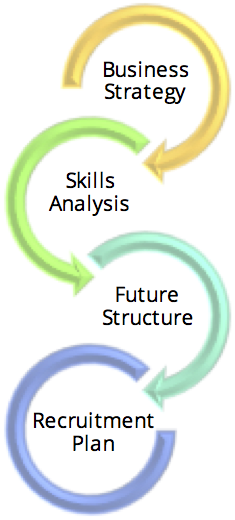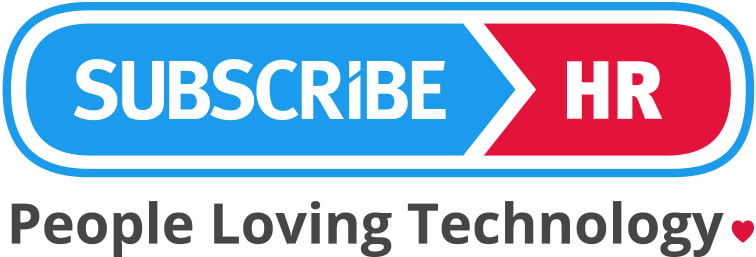When I meet with fast growing start-ups, they often say: 'we need help in writing position descriptions, working with recruiters, sorting resumes.' This is exactly why recruitment fails. With this approach, it is most likely that these start-ups will end up recruiting the wrong people. They may get the headcount number right, but consequences for the culture and teamwork will eventually impact company performance.
Big organisations can afford bad recruitment, for start-ups and SMEs every hiring mistake takes a much bigger toll.
The First Step Towards Successful Recruitment is CULTURE!
When I ask founders of growing start-ups about their challenges, getting the right people in the right time is always on top of their list (after fundraising). Unfortunately however, most of them are repeating the same mistake when recruiting new employees: they look at the recruitment process as simply transactional and administrative. They are concerned with writing position descriptions, engaging with recruiters and sorting resumes. They hire by focusing on skills, only realising after its too late, that something else is missing.
Recruiting for start-up success starts from deciding on and leading the start-up’s culture, since the cultural fit is what’s holding the organisation together. Cultural fit is the probability that the new employee will be able to adapt to your core values, behave according to them and prosper within the new environment.
Successful start-ups recruit for culture, not for numbers and specific tasks. Why? Simply because poor cultural fit results in turnover that costs the organisation between 50-60% of the employee’s annual salary (according to SHRM). Successful start-ups begin their recruitment process with culture and then plan in advance the workforce needs and structure, according to the start-up’s aims and strategy. Only then they should look at the transactional process of recruitment.
The transactional part of recruitment is the least important in the process. Successful recruitment is based on selecting the right people, those with cultural fit, and should follow the process below to ensure your best chance at long-term success.

How To Recruit People With a Cultural Fit
- Establish your start-up’s culture: define and articulate the organisation’s values, goals and practices (“the way we do things here”). Once this is clear, not only to the founders, but to everyone in the organisation, recruiting for cultural fit becomes a much easier and more enjoyable task.
- Design the recruitment process around cultural fit: Yes, you do need to check skills, problem solving and overall experience. But once the relevant skills are established, the focus and effort of all those that are involved in the process, should be on culture. Remember, talented people can learn skills pretty quickly; changing people who have the right skills but are not a cultural match, is almost impossible. So, what do I mean by designing the process:
a. Verify skills: this can be done by providing a task to complete (such as a problem to solve or develop), which doesn’t cost the start-up money, nor time of the team. Only those who perform well are then interviewed.
b. Interviews: expose the candidate to at least 2-3 people from the orgnanisation (preferably from different teams). No, not in a panel interview. Panel interviews are good to see how people present in front of a group. They are “show and tell”. You cannot dig into true values and behaviours in panel interviews.
c. Assessments: some assessments (the one I find as best in predicting behaviours and cultural fit is Saville Wave) are designed to look for cultural match and predict actual performance. You can get great information from these assessments, way beyond what you gain in interviews (especially if the interviewers are managers and team members that are not trained in behavioural interviews).
d. Reference check: questions such as ‘describe the culture that best fits the candidate,’ ‘tell me what motivates and demotivate the candidate,’ can reveal a lot more than questions about skills and attributes. - Interview for culture:
a. Each interviewer should describe the culture from her/his own view: although your start-up has one culture, each team member experiences it differently. It is important that the candidate will be exposed to different views, so please don’t coordinate what the interviewers say about the start-up and its culture.
b. Ask questions that reveal general cultural fit, such as:
i. What is the ideal culture for you?
ii. What is the environment you thrive in?
iii. Tell me about the organisation you currently work in. What do you like there, what don’t you like there?
c. Ask questions about the specific values of your start-up: for example, if one of the values is collaboration, ask the candidate about how she/he likes to work, ask them to provide an example of collaboration they have initiated, and to tell you about a time when they didn’t collaborate and what they have learnt from it.
d. Probe: ask candidates beyond the answer they prepared at home to demonstrate how they deal with uncertainty, conflicting deadlines, changes of priorities, solving problems that require cross-team collaboration. - Show the candidate around the office: giving potential employees a tour of your office and watch their reaction. Humans are visual beings and seeing the workstation or desk where they will spend their days with you is an important part of them understanding how they will fit into your business.
- Collect all the information: use the feedback and notes from the different interviewers, collate the results of the assessments and reference checks and then take the time and effort to really assess the cultural fit of each candidate.
- Recruiting with a focus on cultural fit: means hiring those who will flourish in their roles, stay for long and be part of your start-up’s growth journey. You can teach people new skills and knowledge, but you can’t train them to love the way your start-up operates.
Planning Matters: Rethinking Recruitment for Start-ups and SMEs
I meet with start-ups on a daily basis and am amazed how they all describe the same symptoms as major challenges for growth: they can’t get the talent they are looking for on time to deliver promised deadlines! By the time they recruit new employees, it is often too late to start training and bringing them up to speed. The reasons stated are always the same: lack of talent in the market, tough competition, multinationals and heavily funded start-ups that offer higher salaries than what they can afford to pay…
These reasons, which are all true, are not the core problem. The fundamental problem is that these start-ups are making the same mistake over and over again: wasting money and time on transactional HR, rather than conducting workforce planning before they start recruiting.
Yes, this concept applies to start-ups, not only to big corporates. You don’t need to have a person dedicated to planning, but without engaging in this process, you will find yourself hiring the wrong people, at the wrong time and wasting your (limited) funds for nothing, often leaving you feeling as if you are throwing your money to the bin. Starting to recruit (writing PDs, adverts and interviewing candidates) without engaging in workforce planning first is a recipe for failure!
What is Workforce Planning?
Workforce planning is a short, essential process to ensure that your start-up has:
- The right people (skills, competencies and culture)
- In the right positions
- At the right time
- At the right price / cost
- Ready to execute the business strategy
Sounds scarier than what it actually is, right? Ultimately, it's all about people management.
Why Should You Spend Time on Workforce Planning?
Only by conducting workforce planning prior to recruiting people, you are able to achieve the following:
- Understand which roles you need: what roles you need to be able to fulfil the strategy and how to structure those roles.
- Attract and hire the right people: those with the skills needed to perform the role at the right time; those that are motivated to join the journey and will stay despite uncertainties and difficulties during the start-up rollercoaster.
- Meeting deadlines: by understanding the capabilities of your current team, you are able to reallocate responsibilities and recruit those that have skills that are currently missing in the start-up and are crucial for future success. Having the right number of employees, with the right skills, at the right time to deliver any given project is crucial to your success.
- Ensuring positive culture: when recruiting under time pressure (because the position was really meant to be filled two months before you started the recruitment process), the first intuitive decision we often take is to make some shortcuts and compromises. This is exactly how you end up hiring the wrong people culturally, which then affects the entire team.
- Clients and stakeholders love you: having no employees to service your clients or having turnover of employees that deal with clients significantly reduces their satisfaction. Overstressed employees (due to overload or turnover of their colleagues) project their dissatisfaction outside the organisation (even when they don’t mean to).

What Workforce Planning For Start-ups Should Include
- Business Strategy: including future growth, deliverables and revenues.
- Skills Analysis: understand the skills and capabilities of current talent and determine skills gap, (what skills will you need in order to achieve the company goals and by when?). This analysis includes both technical and soft skills (such as leadership).
- Future Structure: establish the number of potential future open vacancies, who can take new roles and what the future structure will look like to ensure successful strategy execution on time.
- Talent Retention: when you plan your workforce in advance and offer core team members promotions and / or new challenges in accordance with the plan (and not reactively), they are more likely to stay with your start-up, even in difficult times.
- Recruitment plan: When should you be starting the recruitment for each position? What are your sourcing options? How are you going to attract the right talent? How are you going to support the new employees to become productive on time?
Conducting workforce planning should be done periodically, as you review your start-up strategy. Changes in direction and reaching special milestones need to be followed by this short and essential process.
To sum up, transactional HR, especially in start-ups, does not support growth. Without workforce planning, no transactional recruitment will deliver the right people with the right skills at the right time. You can continue paying for transactional HR services, but is this really where your money needs to go to? Start planning your workforce and you will get the results you are really looking for.
Want to learn more? Download this free White Paper on Start-Up Culture.


